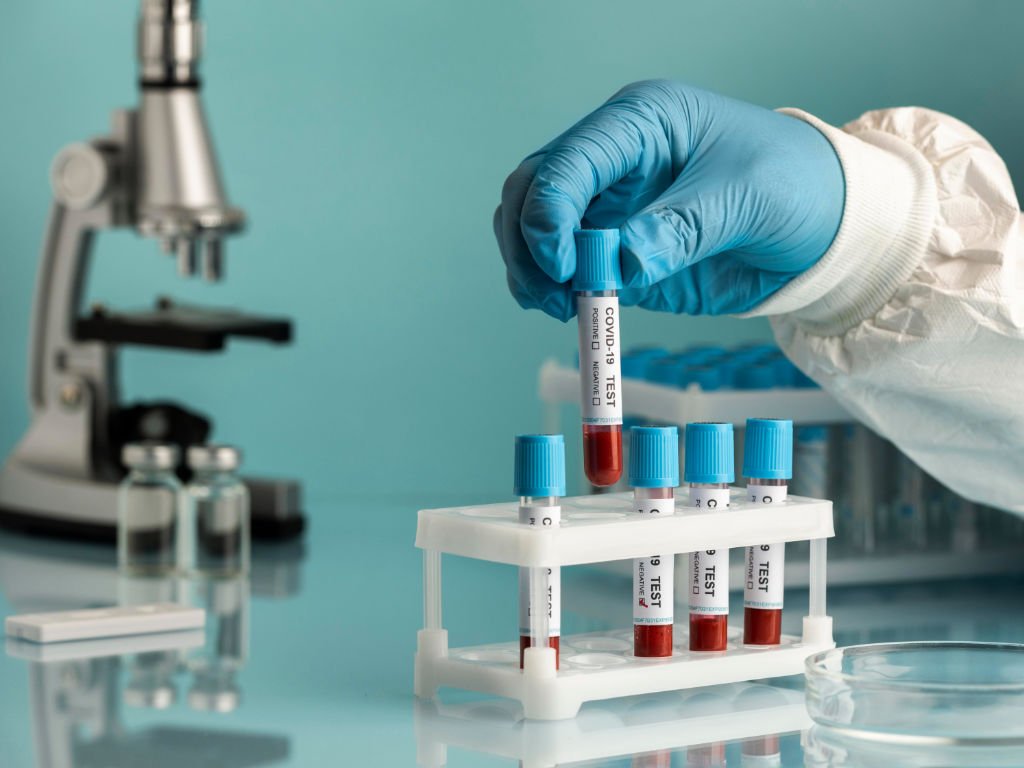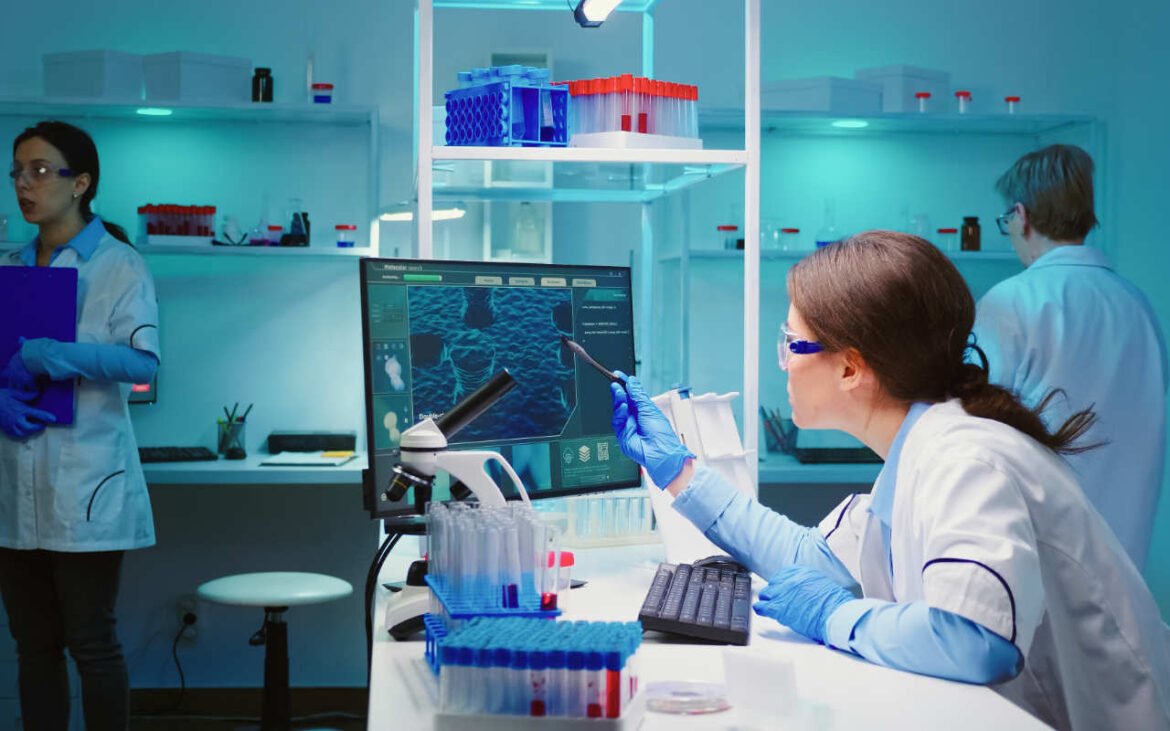Table of Contents
Ever wondered how a simple blood test can reveal so much about your health? Or how doctors can spot diseases before you even feel sick? Welcome to the fascinating world of health diagnostics – a field that’s literally saving lives every day by catching problems early and giving us the tools to fight back.
Think about it: just a few decades ago, doctors had to rely mostly on symptoms and physical exams. Today? We’ve got technologies that can peek inside our bodies at the cellular level, predict our risk for diseases we might never develop, and even diagnose conditions from the comfort of our homes. It’s pretty mind-blowing when you stop to think about it.
What Exactly Are Health Diagnostics?
Let’s start with the basics. Health diagnostics encompasses all the tools, tests, and technologies designed to detect, monitor, and manage diseases or health conditions. It’s like having a crystal ball for your health – except this one’s backed by science and gets more accurate every year.
The beauty of modern health diagnostics lies in its diversity. We’re talking about everything from that routine blood work your doctor orders during your annual checkup to cutting-edge imaging that can spot a tumor smaller than a pea. Here’s what’s in the diagnostic toolbox:
- Laboratory tests (blood, urine, molecular assays)
- Imaging procedures (X-rays, MRIs, CT scans)
- Pathology and digital diagnostics
- Rapid diagnostic and point-of-care testing
What makes this field so crucial is its ability to catch diseases in their early stages – often before you’d ever suspect something’s wrong. Early detection doesn’t just improve your chances of successful treatment; it can literally be the difference between life and death.
Why Laboratory Tests Are the Backbone of Health Diagnostics

If health diagnostics were a building, laboratory tests would be the foundation. These tests are where the magic happens – where a few drops of blood or a small urine sample can tell an entire story about what’s going on inside your body.
Let’s break down the heavy hitters:
Blood Tests: Your blood is like a highway carrying information about every organ in your body. A complete blood count can reveal anemia, infections, or blood cancers. Metabolic panels check how your liver and kidneys are functioning. Lipid panels assess your heart disease risk. It’s amazing how much intel we can gather from such a small sample.
Urine Tests: Don’t underestimate the power of that little cup! Urine tests can detect everything from urinary tract infections to diabetes to kidney disease. They’re non-invasive, quick, and incredibly informative.
Genetic and Molecular Tests: This is where things get really futuristic. These tests can identify hereditary conditions, detect infectious diseases at the molecular level, and even predict your response to certain medications. We’re talking about personalized medicine at its finest.
The coolest part? Laboratory testing has become incredibly sophisticated. We’re now using smaller sample volumes, getting faster results, and detecting conditions we couldn’t even test for a decade ago. Automation and advanced biomarkers are making these tests more reliable and accessible than ever.
Health Screenings: Your First Line of Defense
Here’s where preventive care gets real. Health screenings are like having a security system for your body – they’re designed to catch problems before they become, well, problems.
The genius of screening tests is that they’re systematic and proactive. Instead of waiting for symptoms to appear, we’re actively looking for trouble. And trust me, when it comes to diseases like cancer or heart disease, catching them early can make all the difference.
What Should You Be Screening For?
Cancer Screenings: Mammograms for breast cancer, colonoscopies for colorectal cancer, Pap smears for cervical cancer – these aren’t just suggestions. They’re your best bet for catching cancer when it’s most treatable.
Cardiovascular Screenings: Blood pressure checks, cholesterol panels, and heart rhythm monitoring can identify your risk for heart disease and stroke. Considering that heart disease is still the leading cause of death worldwide, these screenings are non-negotiable.
Diabetes and Metabolic Assessments: With diabetes rates skyrocketing, regular glucose testing and HbA1c checks are becoming increasingly important. Early detection means better management and fewer complications.
What’s really exciting is how screening is evolving. We’re seeing non-invasive methods, AI-driven risk prediction models, and at-home test kits that make preventive care more accessible than ever. You can now screen for certain conditions from your living room – how’s that for convenience?
How Medical Technology Is Revolutionizing Health Diagnostics
Okay, this is where I get really excited. The intersection of technology and health diagnostics is creating possibilities that would’ve seemed like science fiction just a few years ago.
Artificial Intelligence: The Game Changer
AI isn’t just analyzing your Netflix preferences anymore – it’s reading your medical scans with superhuman accuracy. AI algorithms can now detect diabetic retinopathy from eye photos, identify skin cancer from smartphone images, and predict heart attacks from ECG readings. We’re talking about diagnostic accuracy that often surpasses human experts.
Telemedicine: Bringing Diagnostics to You

Remember when you had to physically go to a lab for every test? Those days are numbered. Telemedicine platforms are enabling remote diagnostics and consultations, making healthcare more accessible, especially for people in rural areas or those with mobility issues.
Digital Pathology: The Future of Disease Analysis
Digital pathology is digitizing tissue slides, making them shareable and analyzable by AI. This means faster, more accurate diagnoses and the ability to get second opinions from specialists anywhere in the world.
Wearable Health Devices: Continuous Monitoring
Your smartwatch isn’t just counting steps anymore. Modern wearables can monitor heart rhythm, blood oxygen levels, sleep patterns, and even detect early signs of illness. It’s like having a personal health assistant on your wrist 24/7.
These technologies aren’t just cool gadgets – they’re fundamentally changing how we approach health diagnostics. They’re making testing faster, more accurate, and more personalized than ever before.
Healthcare Innovation: What’s Coming Next?
If you think health diagnostics are impressive now, you haven’t seen anything yet. The future is looking absolutely incredible.
Advanced Molecular Diagnostics
We’re moving toward diagnostics that can analyze your health at the molecular level. Think liquid biopsies that can detect cancer DNA circulating in your blood, or breath tests that can diagnose diseases from the compounds you exhale. Mind-blowing stuff.
AI Integration Everywhere
AI isn’t just helping with individual tests – it’s optimizing entire diagnostic workflows. We’re talking about systems that can predict which tests you’ll need, automate complex analyses, and even suggest treatment plans based on your unique genetic and health profile.
Point-of-Care Revolution
The future of diagnostics is portable. We’re developing devices that can perform complex tests anywhere – in ambulances, at home, in pharmacies, even in developing countries with limited infrastructure. These innovations are democratizing access to high-quality diagnostics.
Personalized Medicine Integration
Soon, your diagnostic results won’t just tell you what’s wrong – they’ll tell you exactly how to fix it based on your unique genetic makeup, lifestyle, and health history. We’re talking about truly personalized treatment plans.
Why This All Matters for You
Health diagnostics isn’t just about fancy technology – it’s about giving you the power to take control of your health. When you understand what’s available and how to use it, you become an active participant in your healthcare rather than a passive recipient.
The key is staying informed and proactive. Don’t wait for symptoms to appear. Work with your healthcare provider to develop a screening schedule that makes sense for your age, risk factors, and family history. Take advantage of the technologies available to you, whether that’s wearable devices, at-home testing, or advanced screening programs.

Frequently Asked Questions
How often should I get diagnostic tests?
The frequency depends on your age, risk factors, and family history. Generally, annual blood work and regular screenings for age-appropriate conditions are recommended. Consult with your healthcare provider for a personalized schedule.
Are at-home diagnostic tests accurate?
Many at-home tests are quite accurate, but they’re not always a replacement for professional testing. They’re great for monitoring and screening, but abnormal results should always be followed up with your healthcare provider.
What’s the difference between screening and diagnostic tests?
Screening tests are performed on healthy people to detect diseases early. Diagnostic tests are used when symptoms are present or when a screening test suggests a problem.
How is AI improving diagnostic accuracy?
AI can analyze vast amounts of data quickly and identify patterns that humans might miss. It’s particularly effective in medical imaging, where it can detect subtle abnormalities that could indicate early disease.
Will health diagnostics become more affordable?
Yes, technological advances are generally driving costs down while improving quality. Point-of-care devices, automation, and increased competition are making diagnostics more accessible and affordable.
The world of health diagnostics is evolving at breakneck speed, and honestly, it’s one of the most exciting fields in medicine right now. From AI-powered analyses to portable devices that can diagnose diseases in minutes, we’re living in an era where early detection and personalized treatment are becoming the norm rather than the exception.
Staying informed about these advances isn’t just interesting – it’s essential for anyone who wants to take charge of their health. Whether you’re dealing with a chronic condition, focused on prevention, or just curious about what’s possible, understanding the landscape of health diagnostics can help you make better decisions about your care.
Remember, the best diagnostic test is the one that gets done. Don’t let fear, inconvenience, or cost keep you from the screenings and tests that could save your life. The future of health diagnostics is bright, and it’s designed to work for you. For more insights on maintaining optimal health, check out our complete guide to general health to complement your diagnostic knowledge with practical wellness strategies.



1 comment
[…] work with healthcare providers who can order appropriate tests and guide supplementation if needed. Modern health diagnostics are making it easier to assess nutritional status […]